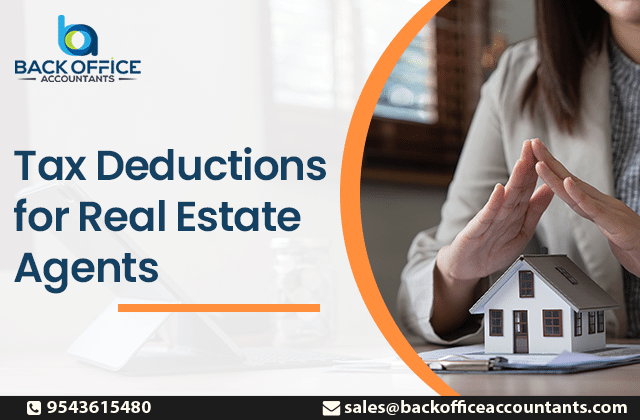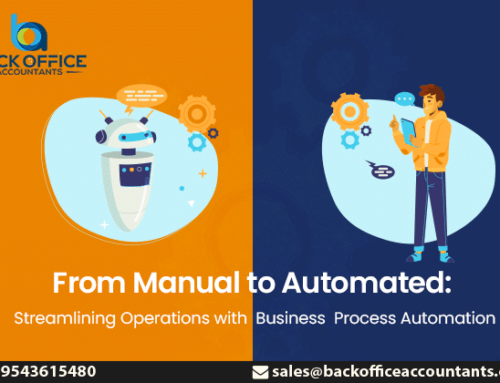Tax is one of the most important aspects that real estate agents have to control to keep their financial situation in balance. Since being an agent is expensive, they adopt diverse strategies to reduce tax liabilities. However, keeping track of these deductions and understanding the current tax laws can be quite difficult. Therefore, in this blog, we discuss tax planning for real estate agents, provide insights on tracking expenses, and explain how hiring a CPA or using tax software can help.
Tax Deductions for Real Estate Agents
Typically, real estate agents have substantial business expenses that they can write off on their taxes. These deductions help lower taxable income and, consequently, reduce the amount of money owed to the IRS. The first step in maximizing tax reductions is to determine which costs are allowable.
Most frequently claimed Tax Allowable Expenditures
- Vehicle Expenses: Real estate agents often have to commute to meet clients, visit properties for sale or rent, etc. Mileage, fuel, repairs, and insurance on the vehicle are examples of allowable deductions. Actual expenses or the standard mileage rate are deductible by the IRS.
- Marketing and Advertising: Expenses that are allowable for advertising the listings or for self-identity include website hosting fees, social media marketing, photography, and fliers.
- Professional Fees: Expenses paid for by the best CPA for realtors in the USAor other professional advisors are allowed in full as business expenses.
- Office and Supplies: Agents can deduct rent, utilities, internet, furniture, and supplies needed for business operations from a home office or from leasing a workspace.
- Education and Training: Expenses incurred in the course of acquiring more education, renewals of licenses, and professional development courses are allowable expenses.
- Technology and Software: Laptops, phones, and tax software for real estate agents are allowed as long as the costs are for business use.
Tax Strategies for Real Estate Agents
Since maximizing deductions is crucial, keeping accurate records of expenses is equally important. Without proper documentation, agents may miss out on legitimate write-offs. Below are some practical real estate agent expense tracking tips:
1. Keep Detailed Records
You can record expenses in real time using a digital device or an app on your mobile phone. Record the amount, date, and the reason for the transaction. The first rule of business is to separate business and personal finances. You should open a separate account and a separate credit card for business transactions. It is easier to manage the accounts and to prevent the intermingling of own and business monies.
2. Leverage Technology
Features like expense tracking and report generation are now available on tax software for real estate agents. They make filing taxes easier and ensure that no deduction is missed.
3. Save Receipts and Invoices
All the receipts and invoices of business expenses must be retained. The receipts can be a digital one or even a physical copy. Make sure to store them safely.
Why Should You Work with a CPA or Tax Professional?
Tax laws are not easy to deal with and this is more so for the real estate agents who are usually busy. The most experienced CPAs for realtors in the USA work with you to file taxes correctly and maximize deductions.
Benefits of Hiring a CPA
- Expertise in Real Estate Taxes: With expertise in specific tax planning for real estate agents, it will be possible to maximize the deductions and avoid violations of the IRS.
- Customized Guidance: They give you advice based on your current financial status so that you can prepare for future taxes.
- Audit Support: In case of an audit, having professional representation offers peace of mind and ensures proper handling of IRS inquiries.
If you are looking for real estate tax planning services in your locality, make sure you work with people who have done real estate business so that you can benefit most.
How Tax Software Help?
There is tax software for real estate agents who are comfortable preparing their taxes. The process is made easier by such platforms as they help to calculate taxes, categorize deductions, and produce reports. Popular options include features such as:
- Expense Categorization: It automatically sorts expenses by IRS deduction rules and regulations.
- Integration with Banking: It connects with your accounts and monitors your income and expenditure in real time.
- Audit Alerts: It identifies some of the signs that may lead to an audit.
Real Estate Agents: Tax Planning
- Plan Quarterly Taxes: Since real estate agents are usually self-employed, they pay estimated taxes every quarter. Charges are procrastinated, and it affects cash flow because it is tied to taxes.
- Boosting Contribution to Retirement Funds: Retirement accounts like SEP IRAs or solo 401(k)s decrease taxable income and build a strong nest egg.
Conclusion
There are many opportunities for real estate agents to lower their taxes by keeping track of expenses and planning their activities. By using tax software, hiring professional services, and organizing throughout the year, agents can make sure they claim back as many deductions as possible and keep as much of their earnings as possible.
Back Office Accountants is the best place to go for professional advice and assistance. Our focus is to provide professional services in tax planning and management to real estate agents and their businesses. We will take the pain out of your taxes so you can focus on making sales!







